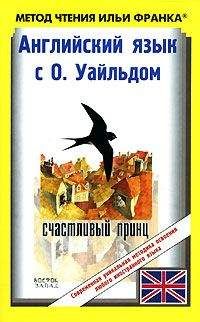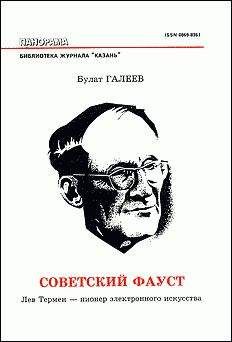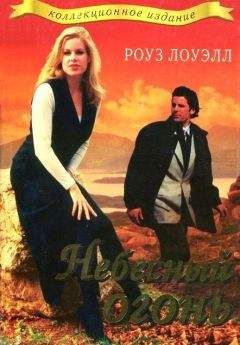“You will never be in the best society (вы никогда не окажетесь в хорошем: «не будете в лучшем» обществе) unless you can stand on your heads (если/пока вы не сможете стоять на голове),” she kept saying to them (повторяла: «продолжала говорить» она; to keep (kept) doing smth. — оборот означает продолжение действия, выраженного причастием); and every now and then (и время от времени: «каждый /раз/ сейчас и тогда») she showed them (она показывала им) how it was done (как это делается). But the little ducks (но маленькие утята) paid no attention to her (не обращали на нее никакого внимания; to pay — платить, to pay attention — обращать внимание). They were so young (они были настолько малы: «молоды») that they did not know (что они /еще/ не знали) what an advantage it is (что это за преимущество) to be in society at all (вообще оказаться в обществе).
whisker ['wiskə] India-rubber ["indiə'rλbə] advantage [əd'vα:ntidζ]
One morning the old Water-rat put his head out of his hole. He had bright beady eyes and stiff grey whiskers and his tail was like a long bit of black india-rubber. The little ducks were swimming about in the pond, looking just like a lot of yellow canaries, and their mother, who was pure white with real red legs, was trying to teach them how to stand on their heads in the water.
“You will never be in the best society unless you can stand on your heads,” she kept saying to them; and every now and then she showed them how it was done. But the little ducks paid no attention to her. They were so young that they did not know what an advantage it is to be in society at all.
“What disobedient children (какие непослушные дети; obedient — послушный, покорный)!” cried the old Water-rat (воскликнула старая Водяная Крыса); “they really deserve to be drowned (они, право, заслуживают того, чтобы их утопить: «чтобы быть утопленными»; really — действительно; зд. как вводное слово — право, по правде говоря).”
“Nothing of the kind (ничего подобного; kind — сорт, класс, разряд),” answered the Duck (ответила Утка), “every one must make a beginning (каждый должен /когда-то/ начинать; beginning — начало), and parents cannot be too patient (а родители не могут быть слишком терпеливыми = родители должны быть как можно более терпеливыми).”
“Ah! I know nothing (ах, я ничего не знаю) about the feelings of parents (о родительских чувствах; feeling — ощущение, чувство),” said the Water-rat (сказала Водяная Крыса); “I am not a family man (у меня семьи нет; family man — семейный человек). In fact, I have never been married (на самом деле, я никогда не была замужем; to marry — жениться, выходить замуж), and I never intend to be (и никогда и не собираюсь; to intend — намереваться; хотеть, собираться). Love is all very well (Любовь — это все очень хорошо) in its way (в своем роде; way — путь, дорога), but friendship is much higher (но дружба гораздо выше = лучше). Indeed, I know of nothing in the world (на самом деле, я не знаю ничего в мире) that is either nobler or rarer (что /бы было/ более благородным или редкостным; rare — редкий, редко встречающийся) than a devoted friendship (чем преданная дружба; to devote — посвящать, отдавать себя целиком).”
disobedient ["disə'bi:djənt] patient ['pei∫(ə)nt] either ['aiðə]
“What disobedient children!” cried the old Water-rat; “they really deserve to be drowned.”
“Nothing of the kind,” answered the Duck, “every one must make a beginning, and parents cannot be too patient.”
“Ah! I know nothing about the feelings of parents,” said the Water-rat; “I am not a family man. In fact, I have never been married, and I never intend to be. Love is all very well in its way, but friendship is much higher. Indeed, I know of nothing in the world that is either nobler or rarer than a devoted friendship.”
“And what, pray, is your idea (а каково, скажите на милость, ваше представление; to pray — молиться; в обращении как вводное слово — просить; idea — идея, мысль; представление) of the duties of a devoted friend (об обязанностях преданного друга; duty — долг, моральное обязательство)?” asked a Green Linnet (спросила Зеленая Коноплянка; linnet — коноплянка, сущ. в англ. языке имеет мужской род, традиционно заменяется местоимением he (он), как существо активное, храброе, ловкое), who was sitting in a willow-tree hard by (которая сидела на иве совсем рядом; hard — сильно; близко, на небольшом расстоянии), and had overheard the conversation (и слышала весь разговор; to overhear (overheard) — подслушивать, нечаянно услышать).
“Yes, that is just what I want to know (да, это как раз то, что мне хотелось бы знать),” said the Duck (сказала Утка); and she swam away (и она уплыла; to swim (swam, swum)) to the end of the pond (на /другой/ конец пруда), and stood upon her head (и встала на голову; to stand (stood)), in order to give her children a good example (для того, чтобы подать своим детям хороший пример; order — порядок, последовательность).
“What a silly question (какой глупый вопрос)!” cried the Water-rat (закричала Водяная Крыса). “I should expect my devoted friend (я бы потребовала, чтобы мой преданный друг; to expect — ожидать, рассчитывать; требовать) to be devoted to me, of course (был предан мне, конечно).”
“And what would you do in return (а что вы будете делать взамен; return — возвращение, отдача, in return — взамен, в ответ, в оплату)?” said the little bird (спросила маленькая птичка), swinging upon a silver spray (качаясь на серебристой веточке), and flapping his tiny wings (и хлопая своими крошечными крылышками; to flap — колыхать(ся); махать, хлопать).
devoted [di'vəυtid] willow ['wiləυ] example [ig'zα:mp(ə)l]
“And what, pray, is your idea of the duties of a devoted friend?” asked a Green Linnet, who was sitting in a willow-tree hard by, and had overheard the conversation.
“Yes, that is just what I want to know,” said the Duck; and she swam away to the end of the pond, and stood upon her head, in order to give her children a good example.
“What a silly question!” cried the Water-rat. “I should expect my devoted friend to be devoted to me, of course.”
“And what would you do in return?” said the little bird, swinging upon a silver spray, and flapping his tiny wings.
“I don’t understand you (я вас не понимаю),” answered the Water-rat (ответила Водяная Крыса).
“Let me tell you a story (позвольте мне рассказать вам историю) on the subject (по такому случаю: «по этому вопросу»; subject — предмет, тема /разговора/),” said the Linnet (сказала Коноплянка).
“Is the story about me (это история обо мне)?” asked the Water-rat (спросила Водяная Крыса). “If so, I will listen to it (если да: «если это так», я буду слушать ее), for I am extremely fond of fiction (потому что я чрезвычайно люблю всякие выдумки; extreme — крайность; fiction — художественная литература; вымысел, выдумка).”
“It is applicable to you (ее можно применить: «она применима» и к вам; applicable — применимый, пригодный),” answered the Linnet (ответила Коноплянка); and he flew down (и слетела вниз; to fly (flew, flown)), and alighting upon the bank (и, опустившись на берег; to alight — сходить; опускаться, садиться /на что-либо/; bank — вал, насыпь; берег /реки, озера/), he told the story of The Devoted Friend (она рассказала историю о Преданном Друге; to tell (told)).
“Once upon a time (давным-давно; once upon a time — традиционный зачин сказки),” said the Linnet (сказала Коноплянка), “there was an honest little fellow (жил-был добрый малый; honest — честный; уст.добрый, почтенный) named Hans (по имени Ганс; to name — называть, давать имя).”
“Was he very distinguished (он был очень выдающийся; to distinguish — отличать, различать)?” asked the Water-rat (спросила Водяная Крыса).
subject ['sλbdζikt] extremely [ik'stri:mli] fiction ['fik∫(ə)n] honest ['Onist]
“I don’t understand you,” answered the Water-rat.
“Let me tell you a story on the subject,” said the Linnet.
“Is the story about me?” asked the Water-rat. “If so, I will listen to it, for I am extremely fond of fiction.”
“It is applicable to you,” answered the Linnet; and he flew down, and alighting upon the bank, he told the story of The Devoted Friend.
“Once upon a time,” said the Linnet, “there was an honest little fellow named Hans.”
“Was he very distinguished?” asked the Water-rat.
“No,” answered the Linnet (ответила Коноплянка), “I don’t think he was distinguished at all (я не думаю, что он чем-то выделялся: «/что/ он был выдающимся»), except for his kind heart (за исключением своего доброго сердца), and his funny round good-humoured face (и /своего/ забавного круглого добродушного лица). He lived in a tiny cottage (он жил в крошечной хижине; cottage — коттедж; хибарка, хижина) all by himself (один-одинешенек: «совершенно один»), and every day he worked in his garden (и каждый день он работал в своем саду). In all the country-side (во всей округе: «сельской местности») there was no garden so lovely as his (не было такого прекрасного садика, как у него). Sweet-william grew there (там росла /турецкая/ гвоздика; to grow (grew, grown)), and Gilly-flowers (и левкой /седой/), and Shepherds’-purses (и пастушья сумка; shepherd — пастух; purse — кошелек), and Fair-maids of France (и лютики; fair-maid — копченая рыбка; часть названия растений, fair — арх. красавица, maid — служанка, девушка). There were damask Roses (росли там и дамасские /алые/ розы), and yellow Roses (и желтые розы), lilac Crocuses (сиреневые крокусы), and gold (и золотистые), purple Violets and white (лиловые и белые фиалки).



